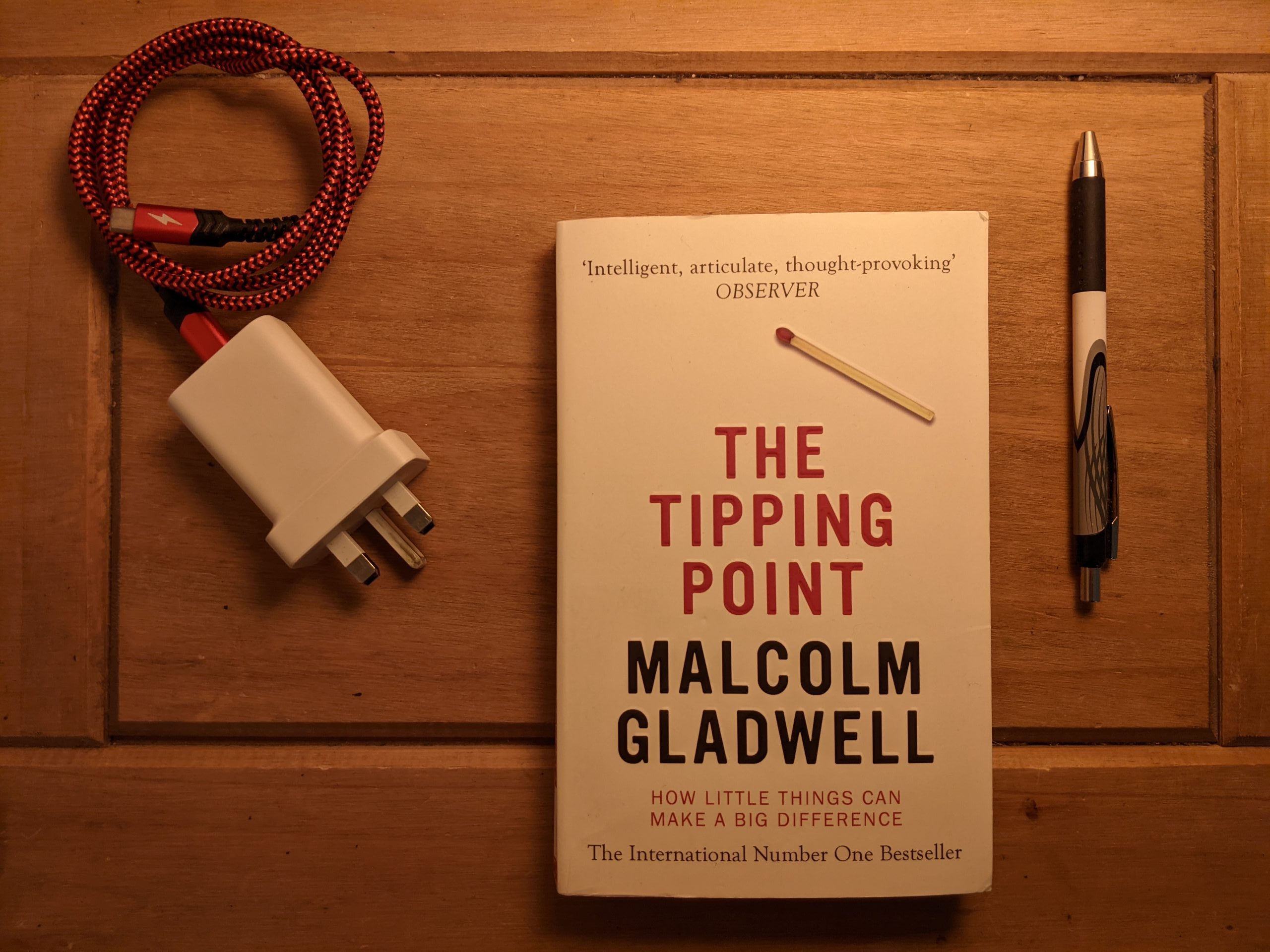Tyler Roberts
Freelance SEO Consultant
The Tipping Point – Malcolm Gladwell – Book Notes

✍️ Summary of Themes
- A social epidemic often relies on a product or idea at some point reaching three types of people – Connectors, Salesmen and Mavens.
- Not all ideas can ‘tip’; this depends on how memorable – or ‘sticky’ – they are.
- Humans are heavily impacted by their environment, which means that even if all of the conditions are met, the tipping point may still not be reached.
📷 Snapshot Review
At times fascinating but mostly a little mundane. It seemed common sense that an idea has to pass someone with social influence to ‘tip’ but perhaps this was less clear in the year 2000 when the book was published. After all, the term influencer itself only reached its tipping point in 2015.
Stories of what made Blues Clues, Sesame Street and Smoking ‘sticky’ were interesting to read but are ultimately only anecdotal evidence.
The ‘Power of Context’ (especially the Broken Windows Theory) explains that humans are heavily influenced by their environments. Even with the right people sharing a sticky idea, an incongruent context could prevent an idea from reaching the tipping point.
🙋🏼♂️ Who Should Read It?
Those interested in how ideas went viral before Facebook, YouTube and Twitter we’re in the palm of everyone’s hands.
💡 How Can I Apply This In My Life?
- Can I use the internet to become a ‘Maven’? This seems to have synergy with the ‘personal knowledge management’ movement which is often fronted by Tiago Forte
- Providing value online and sharing recommendations could help new concepts and products ‘tip’ in the future. Perhaps even something I’m working on could ‘tip’.
💬 Top Highlights
- “The success of any kind of social epidemic is heavily dependent on the involvement of people with a particular and rare set of social gifts”
- “When it comes to finding […] new information, or new ideas – ‘weak ties’ are always more important than strong ties. Your friends, after all, occupy the same world that you do. […] How much, then, would they know that you wouldn’t know? Your acquaintances, on the other hand, by definition occupy a very different world than you. They are much more likely to know something you don’t. […] The more acquaintances you have the more powerful you are.”
- “In epidemics, the messenger matters: messengers are what makes something spread. But the content of the message matters too. […] Is the message – or the food, or the movie, or the product – memorable? Is it so memorable, in fact, that it can create change, that it can spur someone to action?”